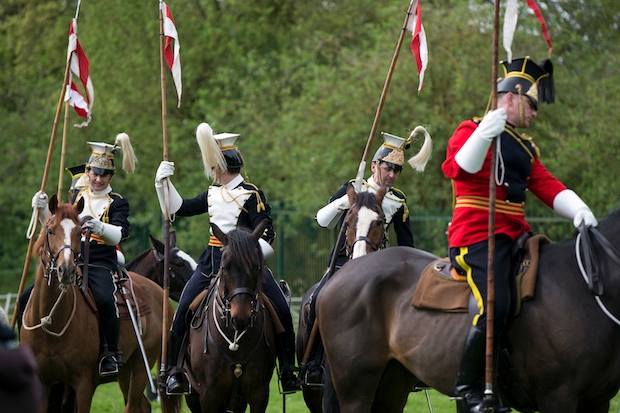‘News of the Week’ in The Spectator, 29 August 1914:
THERE is cause for manly anxiety, there is cause for stern determination; above all, there is cause for unflagging energy in military preparation; but there is no cause for despair, or even for despondency. If the effort of will is maintained by the nation, and if good sense, courage, and the calmness not of fatalism but of resolution strung to the very last point remain ours, we must win. We say this in no boasting spirit; but because time is with us and against our enemies. Those who fight with the sense that all is lost unless they can win quickly may get a certain superficial advantage from their desperation, but let us never forget that “if Tear-’em is a good dog, Holdfast is a better.” If time is for us, only weakness of purpose, irresolution, and apathy can undo us. Before we summarize the military events of the week we will give our reasons for holding that the situation, both on general and on special grounds, is in no sort of way one for despair, but rather for calmness, even if calmness tempered with the weight of anxious cares. The only men who have a right to be light-hearted are the men at the front, and they appear to be taking full advantage of their privilege.
The accounts of the first phases of the first battle that are now coming in from our wounded and from other sources show that our men not only acquitted themselves with great valour—that was certain—but showed the very greatest efficiency in the arts of war. The marksmanship of the infantry seems to have been specially good, and all the accounts show that the Germans were not able to get near our men. The Germans, though they showed great bravery, do not appear to be handy riflemen, and, to the reversal of all former experience, the greater number of our men seem to have been wounded by artillery fire. It is, of course, generally said in war that, though artillery has a great moral effect, it kills very few people, and that the death work is all done by the rifle bullet.
It is not yet known how much the Germans suffered, but we can hardly doubt that their losses were very heavy. Our cavalry were as good as our infantry and our gunners, and there appear to have been cavalry charges quite in the old style. It is, however, not worth while to dwell upon details, as they may be contradicted in the next day or two. It is enough to know that our men fought against greatly superior numbers, that they fought the most trying of all fights—rearguard actions—and that nevertheless, as General French put it, “they fought splendidly,” and wort the unstinted admiration of our allies. In praising our own troops, however, we must not forget that the French fought with equal valour and determination.






Comments